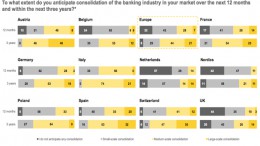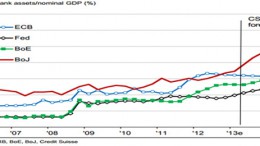BNP is not alone: EU banks could lose up to €80 bn in sanctions
MADRID | The Corner | BNP Paribas shares rose more than 4% on Tuesday after the French lender said it could pay the landmark $8.9bn settlement with US authorities for transferring billions of dollars on behalf of Sudan and other Washington-blacklisted countries. More actors in the EU banking sector might need to pay billionaire fines.






